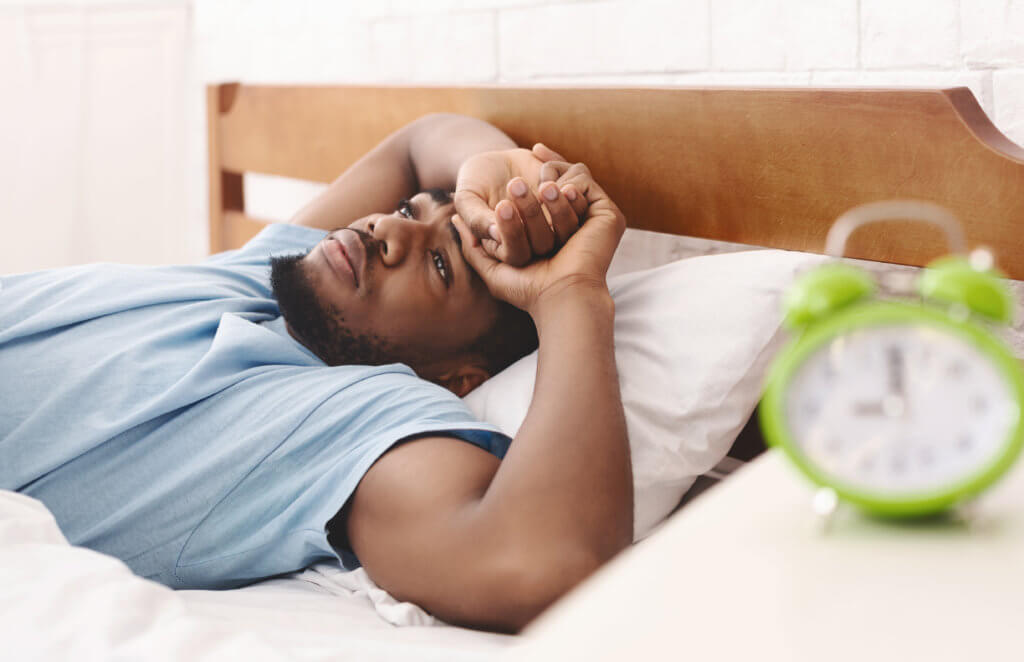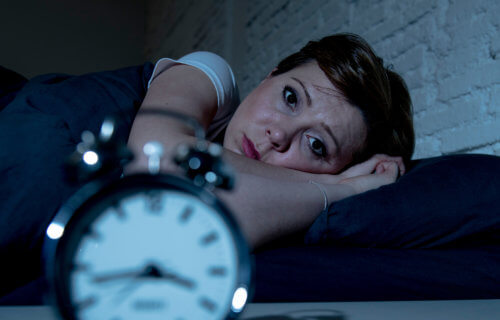BLOOMINGTON, Ind. — Keeping an eye on the clock while trying to fall asleep may actually be worse for your sleep, exacerbating insomnia and forcing people to use more sleep aids, according to researchers from Indiana University. However, the team says there’s simple solution that’ll lead to better sleep and better health.
Insomnia is a common sleep disorder, characterized by an inability to fall asleep, get good quality sleep, or stay asleep. It impacts between four and 22 percent of all U.S. adults. Those who suffer from the condition may not only find that it gets in the way of doing daily activities like work and school, but it also has a connection to potentially life-altering conditions like heart disease, diabetes, and depression.
For this study, participants completed questionnaires about insomnia severity, sleep medication use, how much time they spent monitoring their behavior as they were trying to fall asleep. The team also requested that participants report on any psychiatric diagnoses they received from a doctor before determining how all of these factors connect with each other.
“We found time monitoring behavior mainly has an effect on sleep medication use because it exacerbates insomnia symptoms,” says lead researcher Spencer Dawson, a clinical assistant professor and associate director of clinical training in the College of Arts and Sciences’ Department of Psychological and Brain Sciences, in a university release. “People are concerned that they’re not getting enough sleep, then they start estimating how long it will take them to fall back asleep and when they have to be up. That is not the sort of activity that’s helpful in facilitating the ability to fall asleep — the more stressed out you are, the harder time you’re going to have falling asleep.”

No digital devices in the bedroom
As people become more frustrated with their restlessness, they’re more likely to turn to sleep aids in an effort to get better sleep and take control of their situation. However, Dawson says that the research shows the possible solution is simple: keep technology out of sight and out of mind.
“One thing that people could do would be to turn around or cover up their clock, ditch the smart watch, get the phone away so they’re simply not checking the time,” the study author says. “There’s not any place where watching the clock is particularly helpful.”
Dawson gives this same advice to each new insomnia patient he sees during their first meeting. With 15 years of sleep research and clinical experience under his belt, Dawson is still eager to learn more. He is now interested in comparing individual sleep experiences with what is happening inside their brains, with hopes of gaining even deeper insight into the bigger picture.
The findings are published in the journal The Primary Care Companion for CNS Disorders.
You might also be interested in:
- Best Sleep Trackers
- Best Mattresses
- Best Ways To Improve Sleep
- Bedrooms should be ‘stark and bare’ to ensure good sleep, doctor says
- Sleepless nights? Melatonin supplements may wreak havoc on gut health

